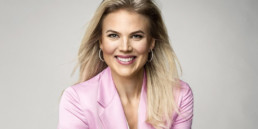As a young girl, I dreamy of a family with two or three kids. As a teenager, I was coached as a sprinter for the national team. My body fat percentage was so low that I had a somewhat boyish body shape. I didn’t even get my period until I was 16. Back then, I was already wondering how the severe training and the composition of my body would affect my fertility. What if I’d never become a mother?
As natural as pregnancy is, it can never be taken for granted. In Finland, fertility has been decreasing for six years in a row, and the average number of children in families is lower than ever. Therefore, I was immensely grateful to be pregnant at 38.
Women’s fertility has long been reported to peak in their twenties. However, senior salaried employees in the metropolitan area have their first child at the age of 34, meaning that there is a gap between peak fertility and the age of starting a family.
The mother’s age inevitably affects the eggs by increasing genetic defects and reducing the number of functional eggs. This is hardly news to anyone, but what most of us don’t seem to realise is how much we can influence our fertility through our lifestyle.
Overweight, underweight, insufficient consumption of carbohydrates, nutrient deficiencies, endurance training and chronic stress affect the development of the egg which starts six months before it can be fertilised. If the circumstances are less than ideal, successful conception is less likely.
Most failures to conceive derive from the six months preceding the attempt to conceive.
A Danish study even suggests that women’s fertility does not peak until the age 30–34.
The reason may be a healthier lifestyle that has grown more common in that age bracket.
Studies also show that the conditions at the early stages of pregnancy and throughout pregnancy influence both the development of the foetus and the health of the baby for the rest of his or her life. That is why those dreaming of starting a family should understand that how you live, eat and feel today is reflected in the generations to come.
If you’re dreaming of becoming a mother, a small change towards a healthier lifestyle is a step closer to fertility and a gift for the future generation.
Tutustu Emilian uusimpaan kirjaan!
Aiheeseen liittyvät
Jooga nidra syvärentoutus
Yoga Nidra syvärentoutus on palauttava ja kehon energiaa herättelevä kokonaisuus. Yoga Nidra tarkoittaa tilaa hereillä olon ja unen välimaastossa.
Meditaatio. Miksi ja miten ja missä harjoittaa?
Meditaatio auttaa selkeyttämään joka päiväistä elämää ja nauttimaan nykyhetkestä.






